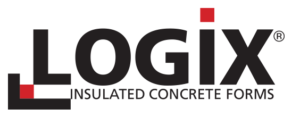ICF Installer Training Series: Introduction
Welcome to the BuildBlock ICF Installer Training Series. This 20 part video series is intended to be an educational walkthrough of the ICF building process. From the early planning phases to pouring concrete and finishing walls, this series will provide the basic knowledge you need to have a successful BuildBlock ICF build. In this brief introduction, we discuss the basic components of ICFs, possible design options, how ICFs are designed and made, and why ICFs are approved as a building material in North American building code. The videos in this series are produced as a companion to the BuildBlock Installation and Technical Manuals available for free download on the Publications Page or for purchase via the BuildBlock Online Store. You can view more videos in this series via the BuildBlock Blog or by subscribing to the BuildBlock YouTube Page. For a more in-depth training experience, you can take the free Online ICF Installer Training Course. Video Transcript Introduction Welcome to the BuildBlock ICFs Installation Training. In this short video, we will learn the basic components of ICFs, possible ICF design options, how ICFs are made, and why ICFs are approved as a building material in North American Building Codes. What are ICFs? Insulating concrete forms (ICFs) [...]













